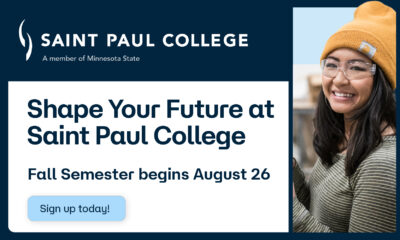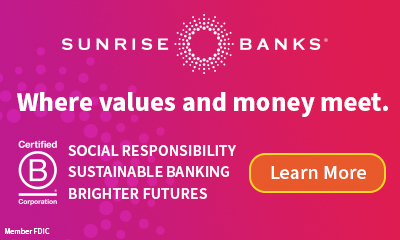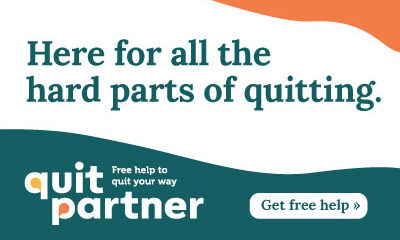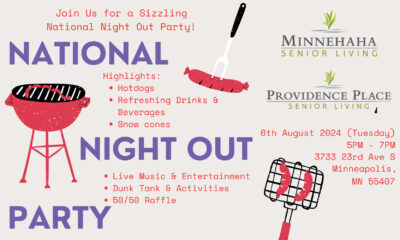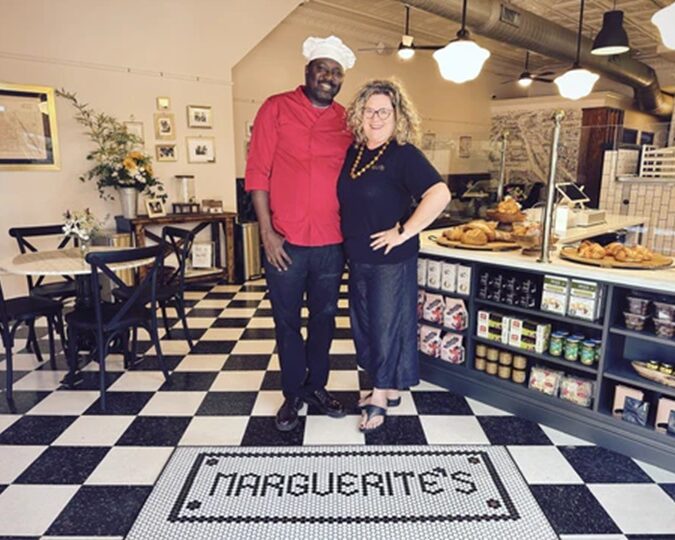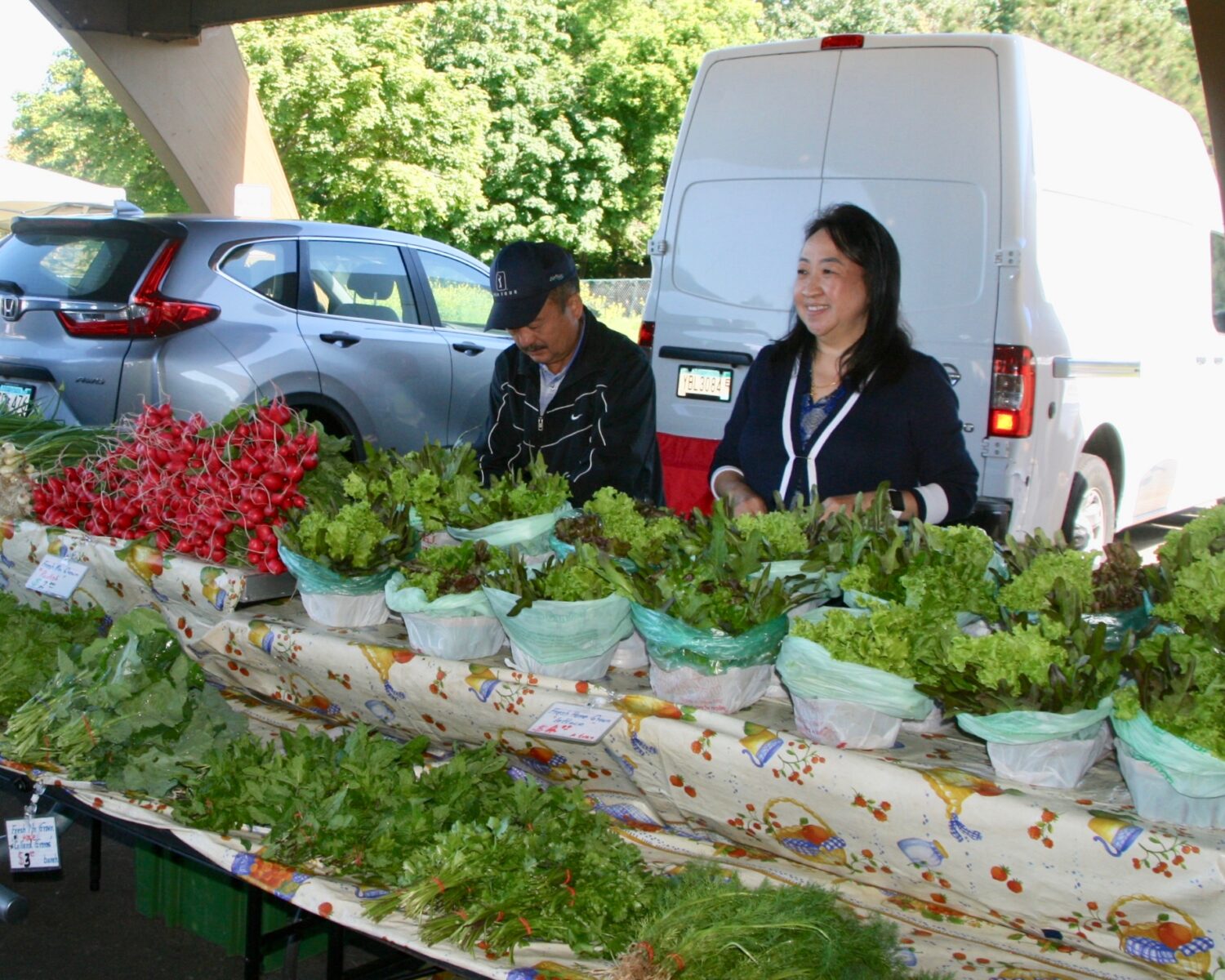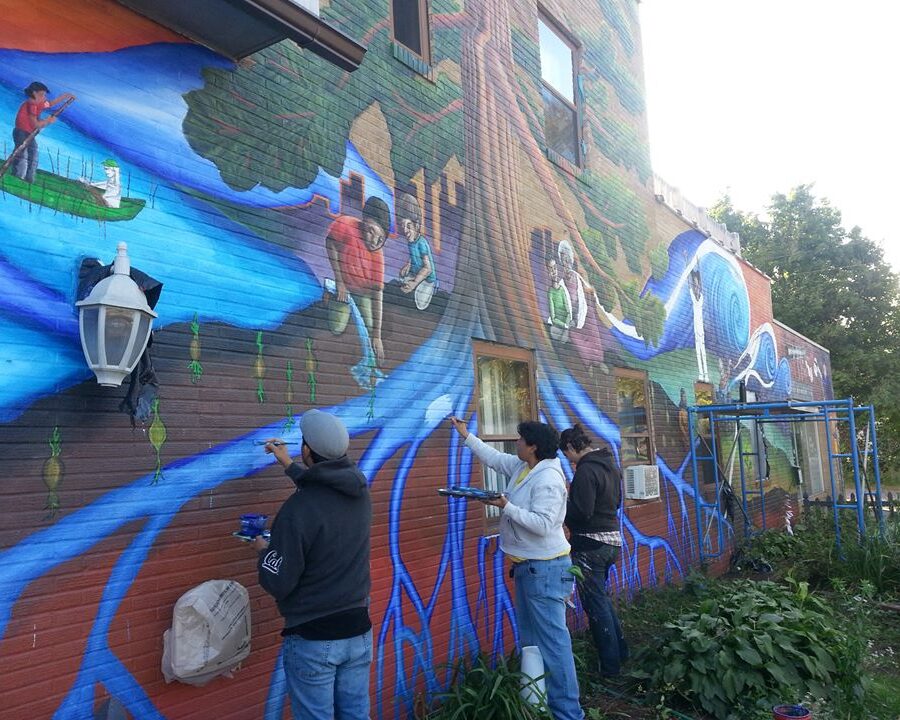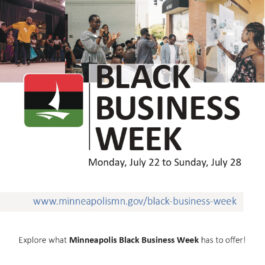BY ELAINE KLAASSEN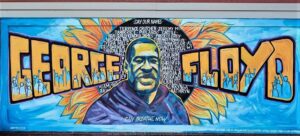
At 38th and Chicago, where George Floyd was killed on May 25, the streets are blocked off so traffic can’t go through the intersection. Inside this space are many flowers, murals, a medic tent, daily community meals, a library, food giveaways and a group called Agape (unconditional love). People from the neighborhood are holding/occupying the space pretty much 24/7. These people are not a terrorist organization, lest there be any questions about that. They aren’t even an organization. It’s a loose group of people whose lives/souls have been deeply wounded by George Floyd’s death on May 25. They call themselves a “leaderless movement.” They are people who want to see life, love and flowers everywhere for people of all colors.
The people holding the space have given their demands to the city—what it will take for them to consent to opening the streets. There are 24 demands. At first, the city was willing to meet some of them, but on the evening I went to GFS for one of their two daily meetings (called “Meet on the Street”), they announced that the city had just sent a letter that didn’t address the issues.
And now, the city was offering jobs to some of the people most active at George Floyd Square. If people took those jobs, it would be like establishing “sides” and it would be sad to have “sides.” If the people of the square worked for the city, then they would be on the “right” side and their feelings and opinions would count. (Well, maybe.) Now, they’re considered some kind of outlaws, I guess. They seem like anything but outlaws to me. They seem brave and heroic, willing to put their lives on the line to protect their neighborhood. To create peace and safety. To pursue justice and equality.
The ideal is for 38th and Chicago to be a place of safety, but the person most vocal in the group warned us at the beginning of the meeting that, we should assume that anyone in attendance could have COVID. We should assume that anyone could be armed. We should assume that what we say in the circle could be recorded. We should assume that not everyone in the square or even in the circle “has your liberation in mind.”
It’s a dangerous thing they are doing. They are standing up for themselves. This could have serious repercussions from the city, the county, the state, the country.
And, they are committed, like many people in Minneapolis right now, to not calling the police if there is a situation of common criminality to deal with. So, it’s dangerous in that way, too. (Even if they did want to call the police, at this point it’s unlikely they would come.)
Before attending this meeting, I had not grasped the extent to which the entire neighborhood has been harmed. There is a palpable sense that these people have been assaulted, and the place where they live has been wounded, trampled, seriously damaged. They feel a deep need for recompense, restitution. Terrible harm has been done—of course to George Floyd, but also to everyone who calls 38th and Chicago home.
Seeking compensation for the harm is a huge part of creating the space at George Floyd Square. But finding a new way to live for everyone, in which racial equality is paramount, tops the list of intentions.
The person effectively leading the meeting, who is Black and is a high school English teacher, described in gripping terms what it has been like for her throughout her life knowing that if she were ever killed, it wouldn’t matter. Since childhood she has known she is expendable in this society. I had never heard it said in quite the way she said it and it made me understand the desperation in a new way. I have never had the experience of being Black in this culture so I only have my imagination and my willingness to listen to help me understand. In the ’60s and since then, I have read Malcolm X, Eldridge Cleaver, Ralph Ellison, James Baldwin, Richard Wright, Toni Morrison, the story of Medgar Evers and more. Recently I read Ibram X Kendi.
When I went out to look at the burned-out buildings in my neighborhood after the destruction following George Floyd’s death, I felt guilt. I thought, “We’ve known about redlining forever, we know what happened after Reconstruction, we know that Black G.I.s after WWII were not given the same benefits as returning white soldiers, we know about the racism of the police department—we know all of it, and yet we just keep thinking, well, maybe it will work itself out in a natural way, etc.” How could we just let it go? Have we been throwing our hands in the air, believing there’s nothing that can be done?
At the very end of the meeting, various people couldn’t emphasize enough the importance of voting. And they stressed the extreme importance of voting at the most local level you can. Personally get to know the people running for Park Board, School Board, community organizations, district judges, etc., so you know what kind of person you are voting for. The main changes we can make are at the local level—as demonstrated by George Floyd Square.


